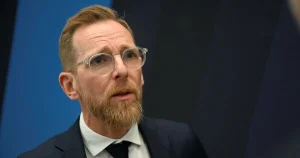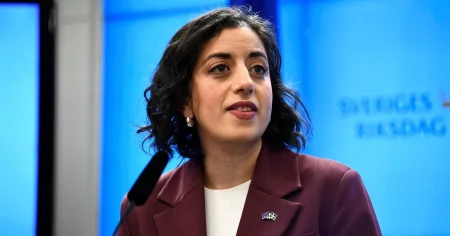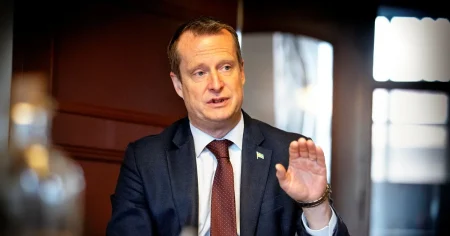The Swedish Taxpayers’ Association recently awarded the 2024 ”Worst Waste of Taxpayer Money” award to government funding provided to the Muslim association Ibn Rushd, despite the organization’s links to extremism and the presence of problematic study materials concerning child marriage and homosexuality within their curriculum. This incident underscores a troubling trend of inadequate oversight and questionable allocation of public funds, highlighting the need for increased accountability and transparency within government spending practices. The Ibn Rushd case serves as a stark example of how ideological motivations can sometimes override due diligence in the allocation of public resources, ultimately undermining public trust and potentially even contributing to harmful practices.
The potential for misuse of public funds extends beyond ideologically driven allocations and can also manifest in instances of procedural negligence and even potential corruption. The city of Gothenburg is currently under scrutiny for a questionable payment of 400,000 kronor to a former colleague for a report on crime prevention that was never delivered. The lack of proper procurement procedures raises concerns about potential cronyism and underscores the importance of rigorously adhering to established protocols, especially when dealing with substantial sums of taxpayer money. The justification offered by the responsible city official – the urgency of addressing the city’s escalating violence – highlights a dangerous mindset where expediency trumps established procedures, creating fertile ground for mismanagement and potential abuse of public funds.
The Gothenburg case mirrors a broader pattern of inadequate oversight and control over public spending, allowing opportunities for unscrupulous individuals and organizations to exploit vulnerabilities in the system. Just as the Ibn Rushd case demonstrates how ideological agendas can lead to misallocation of funds, the Gothenburg incident illustrates how lax procedures and potentially personal connections can pave the way for financial impropriety. Both cases underscore the critical need for robust oversight mechanisms and stringent adherence to established protocols to ensure that public funds are utilized responsibly and effectively.
The allure of readily available public funds can attract individuals and organizations seeking to capitalize on perceived opportunities, often with little regard for the intended purpose of those funds. The term ”Klondyke” used to describe the situation highlights the gold-rush mentality that can emerge when large sums of money are perceived as easily accessible. This environment attracts both well-meaning but ill-equipped organizations and outright opportunistic ”bluff makers” who prioritize personal gain over public benefit. The lack of rigorous oversight and accountability mechanisms creates an environment where such individuals and organizations can thrive, diverting resources away from their intended purpose and ultimately eroding public trust.
Another contender for the 2024 award, the municipality of Botkyrka, provides yet another example of misdirected public funds, with millions earmarked for combating gang violence instead being spent on festive decorations and trips to New York. This case illustrates how easily resources allocated for critical social programs can be diverted towards less essential expenditures, often under the guise of broader community initiatives. This lack of financial discipline not only undermines the efficacy of public programs but also fuels public cynicism about the responsible use of taxpayer money.
Ultimately, these cases highlight a systemic problem within public funding allocation and oversight. The ease with which funds intended for crucial social programs can be diverted, mismanaged, or exploited underscores the urgent need for comprehensive reform. Strengthening procurement procedures, enhancing transparency, and implementing more rigorous accountability mechanisms are essential steps towards ensuring that taxpayer money is used responsibly and effectively. The ”gold” of public funds belongs to the citizens, and protecting it from mismanagement and exploitation is paramount to maintaining public trust and ensuring the efficient delivery of essential public services. The responsibility lies with politicians and officials to act as stewards of these resources, implementing and enforcing the necessary controls to prevent future instances of waste and abuse.














